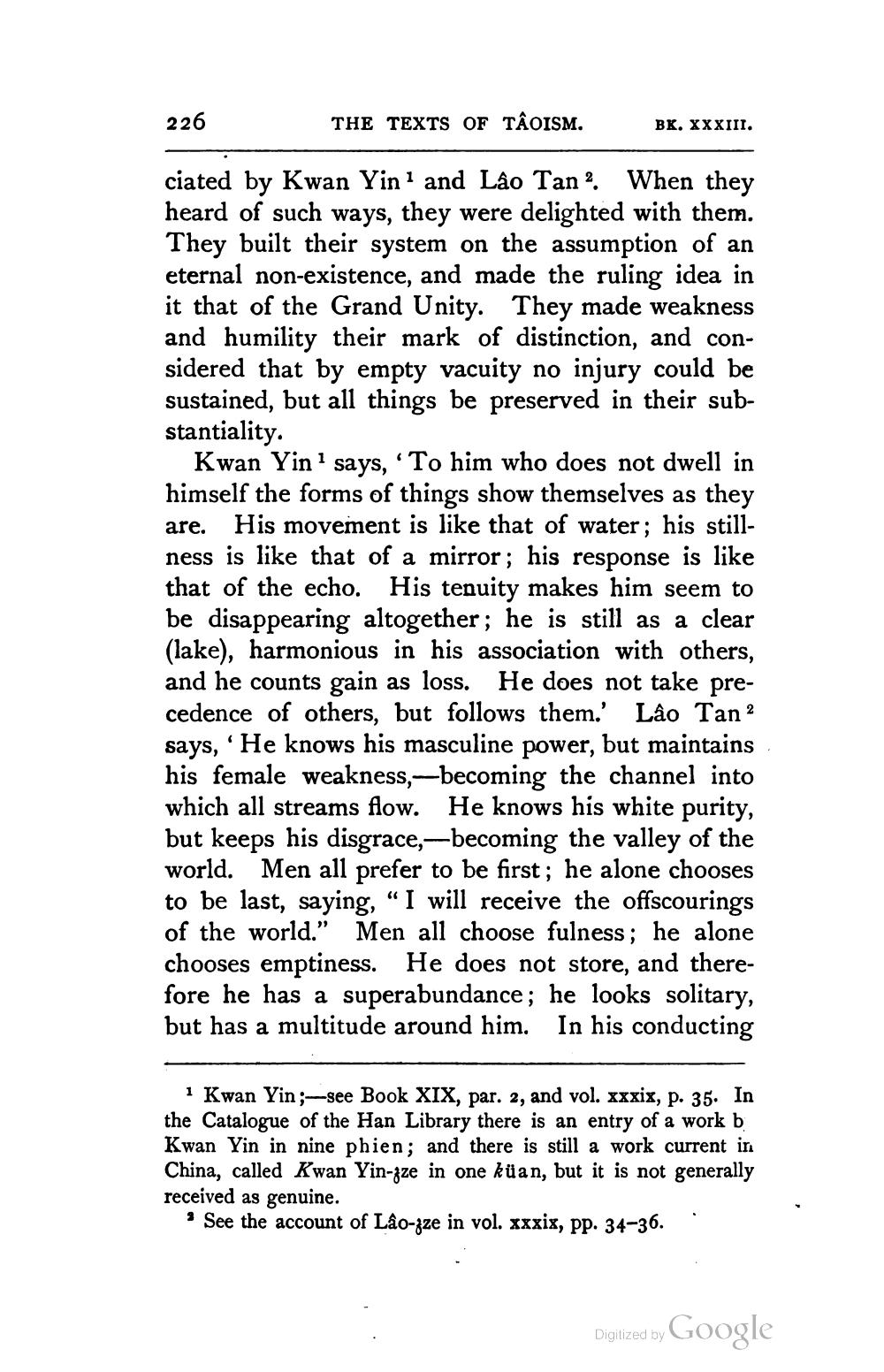________________
226
THE TEXTS OF TÂOISM.
BK. XXXIII.
ciated by Kwan Yin and Lão Tan? When they heard of such ways, they were delighted with them. They built their system on the assumption of an eternal non-existence, and made the ruling idea in it that of the Grand Unity. They made weakness and humility their mark of distinction, and considered that by empty vacuity no injury could be sustained, but all things be preserved in their substantiality.
Kwan Yin 1 says, 'To him who does not dwell in himself the forms of things show themselves as they are. His movement is like that of water; his stillness is like that of a mirror; his response is like that of the echo. His tenuity makes him seem to be disappearing altogether; he is still as a clear (lake), harmonious in his association with others, and he counts gain as loss. He does not take precedence of others, but follows them.' Lão Tan 2 says, 'He knows his masculine power, but maintains his female weakness,-becoming the channel into which all streams flow. He knows his white purity, but keeps his disgrace,-becoming the valley of the world. Men all prefer to be first; he alone chooses to be last, saying, "I will receive the offscourings of the world.” Men all choose fulness; he alone chooses emptiness. He does not store, and therefore he has a superabundance; he looks solitary, but has a multitude around him. In his conducting
1 Kwan Yin :-see Book XIX, par. 2, and vol. xxxix, p. 35. In the Catalogue of the Han Library there is an entry of a work b Kwan Yin in nine phien; and there is still a work current in China, called Kwan Yin- ze in one küan, but it is not generally received as genuine.
See the account of Lâo-zze in vol. xxxix, pp. 34-36. .
Digitized by Google




